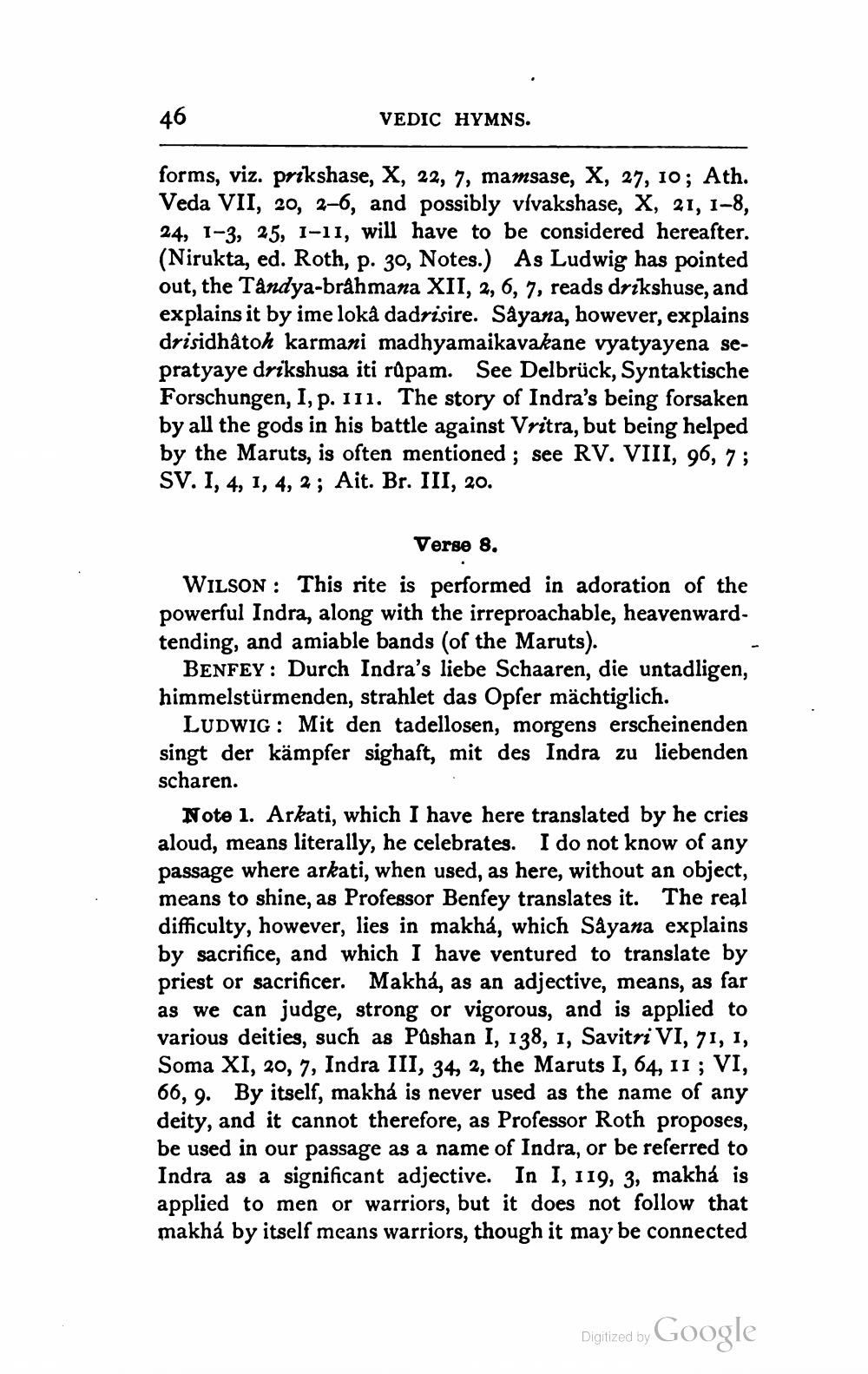________________
46
VEDIC HYMNS.
forms, viz. prikshase, X, 22, 7, mamsase, X, 27, 10; Ath. Veda VII, 20, 2-6, and possibly vivakshase, X, 21, 1-8, 24, 1-3, 25, 1-11, will have to be considered hereafter. (Nirukta, ed. Roth, p. 30, Notes.) As Ludwig has pointed out, the Tandya-brahmana XII, 2, 6, 7, reads drikshuse, and explains it by ime loka dadrisire. Sayana, however, explains drisidhâtoh karmani madhyamaikavakane vyatyayena sepratyaye drikshusa iti rūpam. See Delbrück, Syntaktische Forschungen, I, p. 111. The story of Indra's being forsaken by all the gods in his battle against Vritra, but being helped by the Maruts, is often mentioned ; see RV. VIII, 96, 7; SV. I, 4, 1, 4, 2; Ait. Br. III, 20.
Verse 8. WILSON: This rite is performed in adoration of the powerful Indra, along with the irreproachable, heavenwardtending, and amiable bands (of the Maruts).
BENFEY: Durch Indra's liebe Schaaren, die untadligen, himmelstürmenden, strahlet das Opfer mächtiglich.
LUDWIG: Mit den tadellosen, morgens erscheinenden singt der kämpfer sighaft, mit des Indra zu liebenden scharen.
Note 1. Arkati, which I have here translated by he cries aloud, means literally, he celebrates. I do not know of any passage where arkati, when used, as here, without an object, means to shine, as Professor Benfey translates it. The real difficulty, however, lies in makhá, which Sayana explains by sacrifice, and which I have ventured to translate by priest or sacrificer. Makhá, as an adjective, means, as far as we can judge, strong or vigorous, and is applied to various deities, such as Pushan I, 138, 1, Savitri VI, 71, 1, Soma XI, 20, 7, Indra III, 34, 2, the Maruts I, 64, 11 ; VI, 66, 9. By itself, makhá is never used as the name of any deity, and it cannot therefore, as Professor Roth proposes, be used in our passage as a name of Indra, or be referred to Indra as a significant adjective. In I, 119, 3, makhá is applied to men or warriors, but it does not follow that makhá by itself means warriors, though it may be connected
Digized by Google




